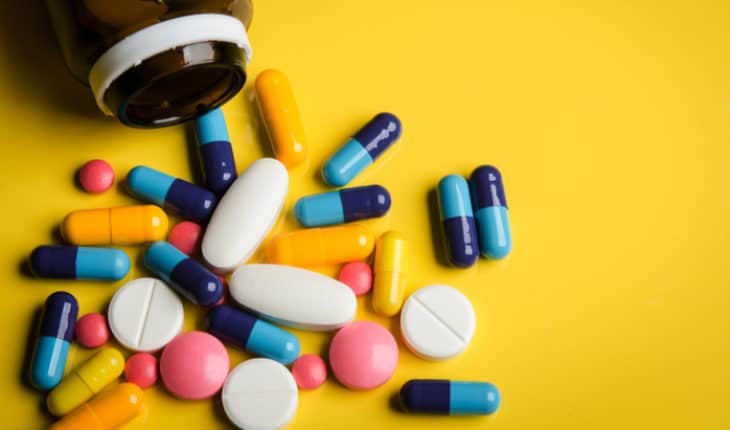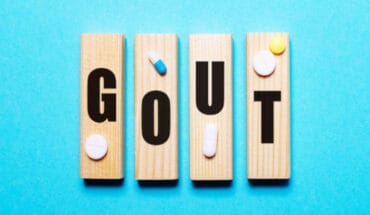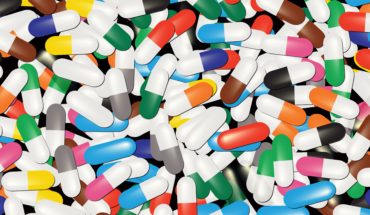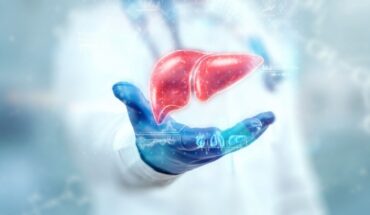Currently there are no proven treatments for coronavirus. However, there is a huge amount of research going into finding a treatment for this disease.
For mild disease, the aim is to relieve symptoms whilst your body fights the illness. This includes staying at home. The reasons for this are twofold; firstly, to rest, rehydrate and recuperate at home. Secondly, to avoid contact with anyone you do not live with and contain the virus.
For people seriously ill from the disease, scientists and doctors are looking at various treatments to fight the virus as well as exploring possible measures to combat the extreme inflammatory response that some patients experience.
Why do we need a treatment?
The most obvious reason for wanting a treatment is that it will save lives, but it could also allow some lockdown measures to lift.
Having an effective treatment would make coronavirus a milder disease.
If it stopped people needing ventilation in hospitals, then there would be less risk of intensive care units being overwhelmed, so controls on people’s lives may not need to be as strict.
What work is being doing to find treatments?
More than 150 different drugs are the subject of research around the world. Most are existing drugs that are being trialled against the virus.
There are three broad approaches under investigation:
- Antiviral drugs that directly affect the coronavirus’s ability to thrive inside the body
- Drugs that can calm the immune system – patients become seriously ill when their immune system overreacts and starts causing collateral damage to the body
- Antibodies, either from survivors’ blood or made in a lab, that help those currently infected to fight the virus.
The Recovery Trial
There are many different test treatment options in the National Institute of Health Research trials.
The UK has just embarked on the Recovery trial. It is the world’s biggest, with more than 10,000 patients taking part. 32% of patients recruited are BAME to ensure they are well represented in the testing. This follows reports that BAME groups are more severely and negatively impacted by coronavirus.
The RECOVERY Trial will begin by testing some of these suggested treatments:
- Lopinavir-Ritonavir (a common treatment for HIV)
- Low-dose Dexamethasone (a type of steroid for a range of conditions typically to reduce inflammation).
- Hydroxychloroquine (related to an anti-malarial drug and a common drug for rheumatoid arthritis and Lupus). This is the drug that Donald Trump has started taking.
- Azithromycin (a common antibiotic)
- Tocilizumab (an anti-inflammatory treatment by injection)
Review of the data from the trial will be regular so that they can identify any effective treatment quickly and make it available to all patients. The Recovery Trial team will constantly review information on new drugs and include promising ones in the trial.
170 hospitals are taking part in the Recovery Trial, including Bradford Royal Infirmary. Dr Dinesh Saralaya, is a consultant respiratory physician in Bradford. He said: “There are times when we feel completely helpless, when we see the patient deteriorating before our eyes.
“It’s so crucial to do these trials so that we can actually find a treatment for these patients.
“The Recovery Trial has been like a ray of hope.”
Plasma treatment for coronavirus
Around 500 patients with coronavirus are to benefit from an experimental treatment trial this week. If the trial proves successful, eventually it could treat around 5,000 patients each week, according to the Department of Health and Social Care.
The name of the treatment is convalescent plasma. It’s aimed at helping patients whose bodies are struggling to produce sufficient antibodies to recover from coronavirus themselves.
Patients will receive blood plasma – the yellowish liquid in blood – from an individual who has recovered from COVID-19. Their blood plasma will contain antibodies produced by the immune system to recover from infections, according to NHS Blood and Transplant.
Can I donate blood?
Individuals can donate their plasma if they have had the virus and have fully recovered. This will also ensure “their body has had time to develop a good antibody response”, says NHSBT.
It must be at least 28 days after the individual has recovered to collect the blood plasma.
They will have to visit one of the NHS’s main donor centres across England: Birmingham, Bradford, Bristol, Cambridge, Gloucester, Lancaster, Leeds City Centre, Leicester, Liverpool, London Edgware, London Tooting, London West End, Luton, Manchester Plymouth Grove, Manchester City Centre, Newcastle, Nottingham, Oxford, Plymouth, Poole, Sheffield, Southampton and Stoke.
You can only donate if you meet certain criteria. Donors must be between 17 and 66, and weigh at least 50kg.
Those who would like to donate should register their details on the NHSBT website.
Success rates of trials
The latest clinical trials of Remdesivir, an anti-viral drug originally developed to treat Ebola, have been encouraging.
The US National Institute of Allergy and Infectious Diseases found that Remdesivir cut the duration of symptoms from 15 days down to 11. The trials involved 1,063 people at hospitals around the world. Some take the drug while others take a placebo (dummy) treatment.
Although Remdesivir may aid recovery – and possibly stop people requiring intensive care – the trials did not give any clear indication whether it can prevent deaths from coronavirus.
It is thought that anti-virals may be more effective in the early stages, and immune drugs later in the disease.
It is one of the four drugs in the WHO Solidarity trial.
The US data on Remdesivir was published at the same time as a trial of the same drug in China, reported in the Lancet medical journal, showed it was ineffective.
However, that trial was incomplete because the success of lockdown in Wuhan meant doctors ran out of patients.
Can HIV drugs treat coronavirus?
There has been much talk, but little evidence, that a pair of HIV drugs – lopinavir and Ritonavir – would be effective at treating coronavirus.
There has been some evidence they can work in the laboratory, but studies in people have been disappointing.
The combination did not improve recovery, reduce deaths or lower levels of the virus in patients with serious Covid-19.
However, as it was with extremely sick patients (nearly a quarter died) it may have been too late in the infection for the drugs to work.
What is Hydroxychloroquine?
Hydroxychloroquine made the news when Donald Trump announced he was taking it. The Brazilian President Bolsonaro was quick to champion this unproven and potentially dangerous treatment for his Country.
Malaria drugs form part of both the Solidarity and Recovery trials.
It is thought that Chloroquine, and a related derivative, hydroxychloroquine, may have antiviral and immune-calming properties.
Hydroxychloroquine is also a treatment for rheumatoid arthritis and Lupus because it can help regulate the immune system.
Laboratory tests have shown it can inhibit the coronavirus, and there is some anecdotal evidence from doctors saying it appears to help patients.
However, the WHO says there is no definitive evidence of its effectiveness. Donald Trump is the only person to have suggested that it can prevent people becoming infected with the virus.
These drugs can have serious side effects and are contraindicated for patients with many different medical conditions.
As of 26th May 2020, reports state that the World Health Organization has suspended testing hydroxychloroquine on Covid-19 patients due to safety concerns.
The news comes as a study in a scientific journal said the drug led to an increased risk of death and heart arrhythmias among people severely ill in hospital with coronavirus
Director-general Tedros Adhanom Ghebreyesus told an online briefing: “The executive group has implemented a temporary pause of the hydroxychloroquine arm within the Solidarity trial while the safety data is under review by the data safety monitoring board.”
How long until we have a cure?
It is too soon to know when we might have a drug that can treat the coronavirus.
However, we should start to get the results of trials in the next few months. This is likely to be much earlier than we will know if a vaccine (which protects against infection rather than treat it) is effective.
This is because doctors are testing drugs that have already been developed and are known to be safe enough to use, whereas vaccines researchers are starting from scratch.
Some completely new, experimental, coronavirus drugs are also subject to testing in the laboratory but are not yet ready for human tests.
- What is a seizure? - 13th March 2025
- Febrile Convulsions and Seizures in Children - 13th March 2025
- Why women are less likely to receive CPR or survive cardiac arrest - 6th March 2025






